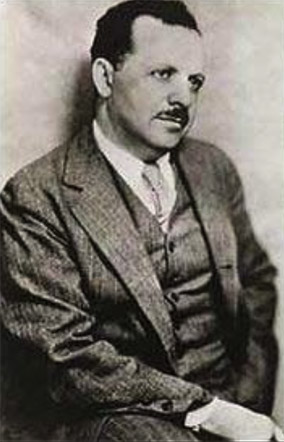Did the world end in October? Is this the death of consumerism?

Edward Bernays.
(Courtesy Wikja Finance)
Sales for companies in all sectors dropped, inventories piled up, lay-offs expanded, and the world went into economic shock. Macro economic trends suddenly reversed. Decades of diminishing personal savings turned into an increase as consumers held back purchases and saved their cash for emergencies. Consumer’s use of credit dropped independently of bank loans and everyone’s forecasting and planning model was broken.
All of that and more secondary effects were due to a slowdown in consumerism. But what is consumerism and where did it come from?
Consumerism is basically the consumption of goods without a compelling or essential requirement, as might be defined by Maslow’s hierarchy of needs. After basic physiological and safety needs such as food, water, and shelter, a person seeks belongingness and esteem goods, and they are the root of consumerism, the buying of things because they make you feel good—an extra pair of shoes, a third TV or car, another dinner out, etc.
The concept of buying things because they make you feel good was developed in the late 1920s in the U.S. by Edward Bernays, a nephew and disciple of Sigmund Freud. Considered the father of public relations, Bernays linked sexual needs and desires to consumer products and helped convince women that they should have prettier dresses and more than one or two. At the bequest of the American tobacco company, he overcame the taboo of women smoking in public, and he found clever ways to persuade people to go to department stores and automobile showrooms to buy things that would make them feel good, powerful, sexy.
He introduced these concepts in the Roaring 20s and even published a scholarly book about it, Manipulating Public Opinion (1928). His ideas and methods were so successful that politicians soon embraced him and hired him as well.
Even during a massive depression and a world war, Bernays services were used and his concepts employed.
The concept of buying things because they make you feel good was developed in the late 1920s in the U.S. by Edward Bernays, a nephew and disciple of Sigmund Freud. Considered the father of public relations, Bernays linked sexual needs and desires to consumer products.
After World War II, when countries and economies began to recover and expand, the development of consumerism was well entrenched in the U.S. and idealized throughout most of the rest of the world. The U.S. consumer, fueled with a highly efficient production machine, bought and tossed away products almost as fast as they could be made and created an expansion based on demand that has lifted the economies and personal wealth of all of the industrialized nations of the world, as well as nations that provide basic commodities like oil, minerals, and metals.
But it was an over-extended model and had no tolerance for major shifts in demand. Thus, when the demand dropped—for just a few months—the model broke and the house of cards came tumbling down. In October, things slowed, November demand dropped 10%, and December was off somewhere between 5% and 10%. That sent ripples though the PC and other industries resulting in massive layoffs, goodwill write offs, inventory write offs, and stock options going upside down—the end of the world so thought some.
And why? Because of a pull back of consumerism—over-inflated over-hyped and over-stimulated consumerism—what has Bernays done?
And now we’ve had a long overdue adjustment. That’s not to suggest that consumerism won’t climb back to the levels we saw in 2007 and the first half of 2008, but it may take a few years to get to as people slowly forget this lesson about personal debt. As they climb back up Maslow’s ladder toward belongingness and esteem needs.
And there are those who say it will never get as excessive as it was and that U.S. citizens will only slowly diminish the percentage of savings as they remember this recession. I am cynical about those prospects because Bernays and his followers are too good at what they do. You soon will NEED things, and you’ll be willing to go into debt to get them. I think this recession is creating pent up demand and that the slow down or postponement of purchasing is seen as an annoyance and not a life lesson in sensibleness.
All things in moderation, grandma used to say. I doubt many will pay attention to that wisdom 12 months from now.